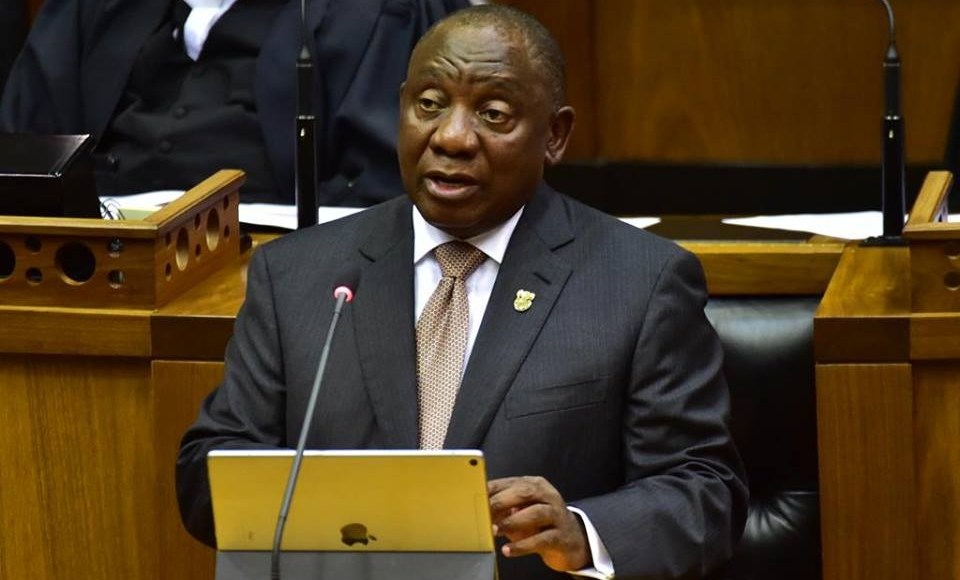The State of the Nation Address (SONA) is one of the country’s most important evenings. It is the evening where the President informs South Africa on the plans government will put in place to deal with the most pressing issues.
The evening of SONA, however, often dissolves into chaos, and last night’s was no exception. The Economic Freedom Fighters (EFF) disrupted the evening, and proceedings were temporarily suspended as a result. Leader of the EFF, Julius Malema, addressed the media and made the demand for former President FW de Klerk to be banned from attending future SONAs – however, it is tradition for former presidents to be present.
The disruption was dealt with, and proceedings continued. These are the most important takeaways from President Cyril Ramaphosa’s SONA 2020 speech:
Gender-based violence (GBV)
Gender-based violence has been an important topic in South Africa, especially over the past year, as awareness has been raised for the plight of women and the danger they face living here.
The country was in uprising after the brutal rape and murder of University of Cape Town student, Uyinene Mrwetyana, at a Post Office. As a result, marches sprung up across the country, forcing government to understand what South Africa’s women have to go through. Since then, President Ramaphosa has made several addresses on the topic, and during his SONA 2020 speech, vowed that government will “increase their fight”.
“We will amend the Domestic Violence Act to better protect victims in violent domestic relationships and the Sexual Offences Act to broaden the categories of sex offenders whose names must be included in the National Register for Sex Offenders and we will pass a law to tighten bail and sentencing conditioning cases that involve gender-based violence,” he said.
Eskom/load shedding
“The load shedding over the last few months has had a debilitating effect on our economy and our people. At its core, load shedding is the inevitable consequence of Eskom’s inability over many years – due to debt, lack of capacity and state capture – to service its power plants,” President Ramaphosa said.
He added that government will be working to support Eskom by “implementing measures” while the embattled public entity restores its operational capabilities.
SOEs
“This year, we are moving from the stabilisation of state-owned enterprises to repurposing these strategic companies to support growth and development,” the President said. “After years of state capture, corruption and mismanagement, we are working to ensure that all SOEs are able to fulfil their developmental mandate and be financially sustainable.”
According to Ramaphosa, government will be ‘taking serious action’ to help SOEs that are in huge debt.
“In consultation with the Presidential SOE Council, we will undertake a process of rationalisation of our state-owned enterprises and ensure that they serve strategic economic or developmental purposes,” he added. “The extent of capture, corruption and mismanagement in SOEs is best demonstrated at South Africans Airways, which was placed in business rescue late last year. The business rescue practitioners are expected to unveil their plans for restructuring the airline in the next few weeks.”
Trains
President Ramaphosa said he would be committed to turning the Passenger Rail Agency of South Africa (PRASA) around to take the strain off commuters. He also added that there is a restructuring plan in place for South African Airways (SAA), which will be revealed in the next several weeks.
This plan is said to include ”pushing back against corruption”.
The country’s youth
One percent of the country’s annual budget will be put aside to assist with youth employment levels.
“This will be through top slicing from the budget, which will require that we all tighten our belts and redirect resources to address the national crisis of youth unemployment,” he said. “The initiative would be prioritised when Finance Minister Tito Mboweni delivered his medium-term budget policy statement later in the year.”
According to Ramaphosa, this initiative is one of six priority plans that will span across the next five years to reduce youth unemployment.
“We are building cutting-edge solutions to reach young people where they are – online, on the phone and in person. This will allow them to receive active support, information and work readiness training to increase their employability and match themselves to opportunities,” President Ramaphosa said.
Cannabis
The President has said that the commercial use of hemp products will be opened up and regulated to provide small-scale farmers with opportunities.
A policy will also be formulated on the use of medicinal cannabis products, and this will be done to grow the industry along with global trends.
Crime
President Ramaphosa said that while there is a marked decrease in rape, violent crime and murder, prospective police officers will be trained much more strictly and efficiently.

